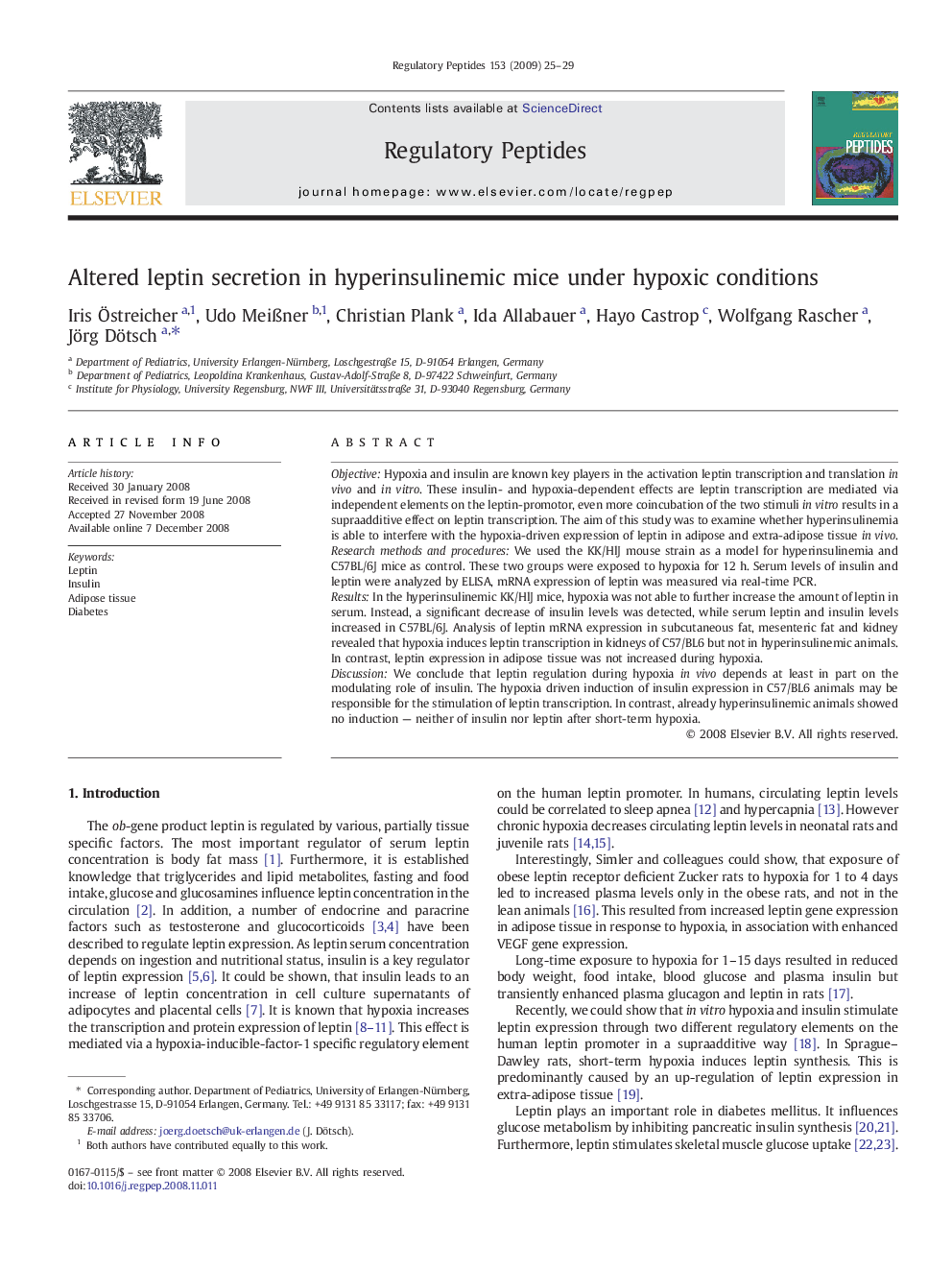| Article ID | Journal | Published Year | Pages | File Type |
|---|---|---|---|---|
| 2022903 | Regulatory Peptides | 2009 | 5 Pages |
ObjectiveHypoxia and insulin are known key players in the activation leptin transcription and translation in vivo and in vitro. These insulin- and hypoxia-dependent effects are leptin transcription are mediated via independent elements on the leptin-promotor, even more coincubation of the two stimuli in vitro results in a supraadditive effect on leptin transcription. The aim of this study was to examine whether hyperinsulinemia is able to interfere with the hypoxia-driven expression of leptin in adipose and extra-adipose tissue in vivo.Research methods and proceduresWe used the KK/HlJ mouse strain as a model for hyperinsulinemia and C57BL/6J mice as control. These two groups were exposed to hypoxia for 12 h. Serum levels of insulin and leptin were analyzed by ELISA, mRNA expression of leptin was measured via real-time PCR.ResultsIn the hyperinsulinemic KK/HlJ mice, hypoxia was not able to further increase the amount of leptin in serum. Instead, a significant decrease of insulin levels was detected, while serum leptin and insulin levels increased in C57BL/6J. Analysis of leptin mRNA expression in subcutaneous fat, mesenteric fat and kidney revealed that hypoxia induces leptin transcription in kidneys of C57/BL6 but not in hyperinsulinemic animals. In contrast, leptin expression in adipose tissue was not increased during hypoxia.DiscussionWe conclude that leptin regulation during hypoxia in vivo depends at least in part on the modulating role of insulin. The hypoxia driven induction of insulin expression in C57/BL6 animals may be responsible for the stimulation of leptin transcription. In contrast, already hyperinsulinemic animals showed no induction — neither of insulin nor leptin after short-term hypoxia.
